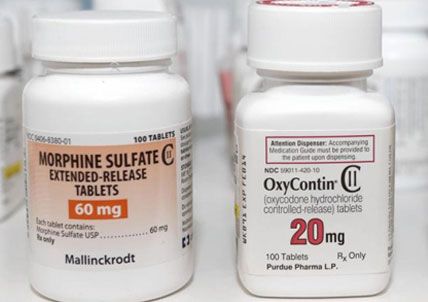
Speak with one of our qualified Treatment Advisers
Call Now
1-800-296-3484 Immediate help, 24/7
What is Morphine Addiction?
Morphine addiction usually starts when a patient receives an appropriate prescription for pain relief from a doctor. The members of the family don’t readily recognize if the patient is becoming dependent on the drug. Sometimes it takes months before they realize that there is already a problem going on.
Morphine addiction is not highly considered as a drug abuse problem in the US because there are very little data available that pinpoint to morphine as an abused drug.
But still, it is a sickness that needs to be understood and cured.
How to Recognize the Signs
If a member of the family has been prescribed to take morphine for pain, and he has been taking it regularly, be sure to keep an eye out for these signs:
- crushes pills before injecting or snorting them
- lies about the number of pills he takes
- takes his prescription with alcohol
- goes to the emergency room for more prescription painkillers.
- runs out of his prescriptions earlier than usual
- complains of being sick or tired
- purchases more morphine anywhere
- has lost his job
- has lost his friends or changed friends
- has lost interest in things that he used to like
- has difficulty sleeping and sometimes sleeps a lot more
- has a change in his eating habits
- has changes in temperament; may become defensive and antisocial
- fails to go to work, school or other commitments and makes unconvincing excuses
- complains of imaginary pains or sickness
- always confused and paranoid
If you noticed these changes in him, he may have knowingly or unknowingly began being dependent on morphine.
Treatment for Morphine Addiction
There are two phases for treating morphine addiction. Phase one is the initial physical withdrawal, and phase two is the psychological therapy and behavioral treatment that will be done continuously afterwards.
On the first phase of treatment, the patient should be checked into a hospital or dedicated treatment facility on the first few days of the withdrawal. This stage is very physical and the symptoms are very severe. Though morphine withdrawal is not life-threatening, sometimes there may be unexpected problems. A doctor should be present at all times to guard against coronary or pulmonary troubles that might arise. The trained medical staff will be helpful in making the withdrawal as comfortable as possible.
During the withdrawal, the addict will be in a lot of pain, throwing up, unable to restrain his bowels. He will be sleepless, and may lose weight swiftly. The treatment will concentrate on helping the patient get through the gruelling stages of withdrawal.
Phase two or the recovery stage can be resumed more peacefully and easily at home, or with therapy and group sessions.
If you or someone you care about is struggling with a morphine addiction, don’t delay. Call now + (866) 518-4301
Reps are available to help 24/7, 365 days a year with treatment solutions nationwide.

For immediate help, 24/7
Please call us!
© Copyright findaddictiontreatments.com 2024 All Rights Reserved.